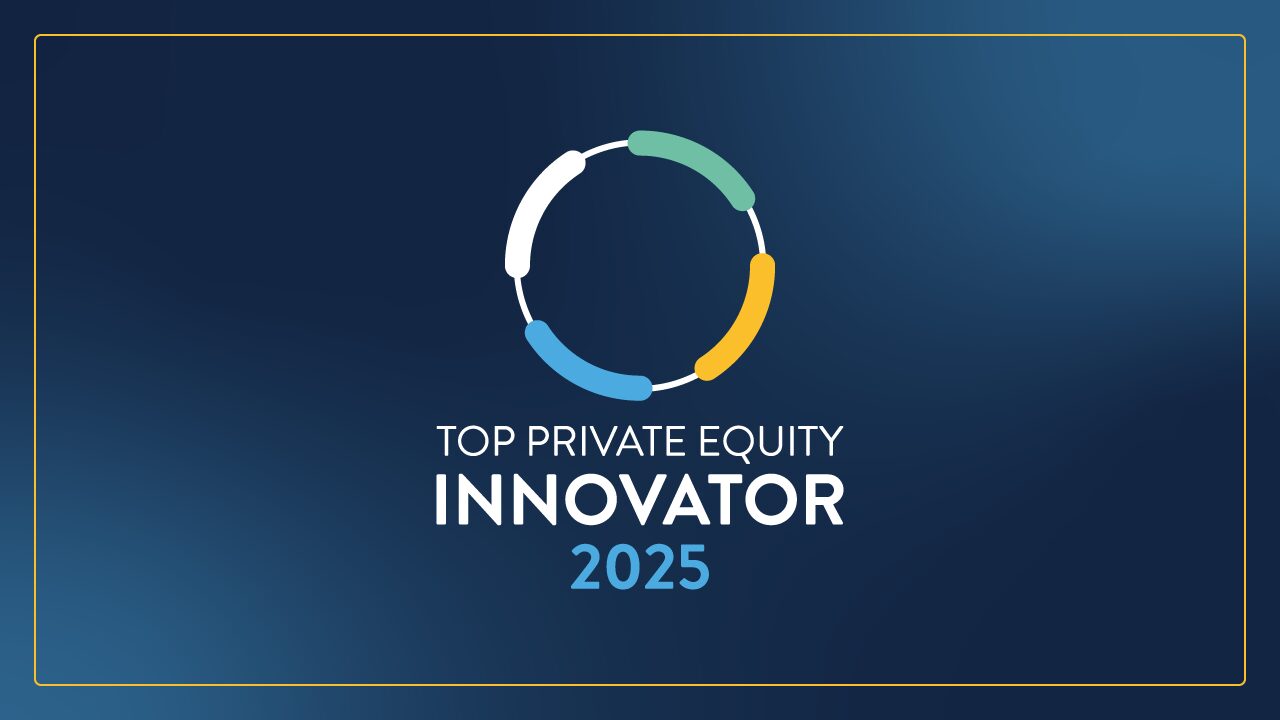An interim controller provides immediate, temporary financial leadership to stabilize accounting operations, ensure compliance, and maintain reporting continuity during transitions – delivering PE-grade expertise without the long-term commitment of a permanent hire.

When portfolio companies face financial leadership gaps, private equity firms need swift, effective solutions that maintain operational continuity without compromising quality. An interim controller can be the perfect bridge, offering specialized expertise precisely when it’s needed most. This comprehensive guide explores everything PE professionals need to know about interim controllers – from defining the role to measuring ROI and executing a successful engagement.
What Is an Interim Controller?
An interim controller is a temporary financial professional who steps in to maintain accounting operations, reporting, and compliance during transitions or periods of organizational change. Unlike permanent hires, these professionals specialize in rapid assessment and stabilization of finance functions, typically serving for 3-9 months while providing day-to-day leadership of the accounting team.
These interim financial controllers focus on maintaining operational continuity, optimizing existing processes, and ensuring timely, accurate financial reporting. Their expertise becomes particularly valuable when companies can’t afford gaps in financial oversight, such as during audit preparations or system implementations.
Interim vs Fractional vs Outsourced Controller
Understanding the distinctions between different temporary controller solutions is essential for selecting the right approach for your portfolio company’s specific needs:
| Model | Time Commitment | Location | Duration | Best For |
|---|---|---|---|---|
| Interim Controller | Full-time (40+ hours/week) | On-site or hybrid | Defined period (3-9 months) | Leadership gaps, turnarounds, transactions |
| Fractional Controller | Part-time (10-20 hours/week) | Often remote | Ongoing, indefinite | Smaller companies, steady-state operations |
| Outsourced Controller | Variable, defined by contract | Primarily remote | Ongoing service agreement | Routine accounting functions, cost efficiency |
While there’s some overlap between these solutions, private equity firms typically choose interim controllers when they need dedicated, full-time expertise during critical transition periods or to address specific challenges requiring significant time investment.
Controller vs CFO: Where the Roles Diverge
Controllers and CFOs serve distinct yet complementary roles within the financial leadership structure:
| Responsibility Area | Controller Focus | CFO Focus |
|---|---|---|
| Primary Orientation | Historical reporting and compliance | Forward-looking strategy and planning |
| Core Functions | Accounting operations, financial controls, month-end close | Financial strategy, capital allocation, investor relations |
| Team Oversight | Accounting staff, AP/AR teams | Entire finance organization, including controller |
| Reporting Line | Often reports to CFO | Reports to CEO |
This distinction underscores why many PE-backed companies need both roles filled with appropriate talent – while the fractional vs. interim finance leadership decision may address strategy needs, controller functions require separate consideration for operational excellence.
When Do PE-Backed Companies Need an Interim Controller?
Several common scenarios trigger the need for temporary controller services in portfolio companies. Recognizing these situations early allows PE firms to act proactively rather than reactively.
Trigger Events: Turnover, Transactions & Transformations
The most frequent catalysts for engaging an interim controller include:
- Unexpected Departures – When a controller resigns without adequate notice or is terminated, creating an immediate leadership gap
- Maternity/Paternity Leave – Coverage during extended planned absences of 3+ months
- Mergers & Acquisitions – Support during transaction diligence and post-close integration
- Carve-Out Transactions – Establishing accounting functions in newly separated entities
- Audit Preparation – Specialized expertise for first-time audits or resolving prior issues
- System Implementations – Leading finance teams through ERP or accounting software transitions
- Compliance Remediation – Addressing identified control weaknesses or regulatory issues
Each of these scenarios presents unique challenges that benefit from the focused expertise and dedicated attention of a full-time interim professional with specific experience in similar situations.
Typical Engagement Lengths & Models
The controller hand-off process typically follows a predictable pattern:
- Assessment Phase (Weeks 1-2) – Diagnosing current state, identifying priorities
- Stabilization Phase (Weeks 3-8) – Implementing immediate fixes, closing reporting gaps
- Improvement Phase (Weeks 9-16) – Optimizing processes, documenting procedures
- Transition Phase (Weeks 17-20) – Knowledge transfer, preparing for permanent hire
While the average engagement runs 4-6 months, timing varies based on specific circumstances and the complexity of financial challenges. Some PE firms use interim controller roles as a “try-before-you-buy” opportunity, allowing both parties to evaluate fit for a potential permanent position.
Core Responsibilities & Quick-Win Deliverables
Interim controllers must balance immediate stability needs with longer-term improvement opportunities, prioritizing deliverables that maximize value during their limited tenure.
Stabilizing the Monthly Close & Cash Controls
The primary interim controller duties in the critical first 30 days typically include:
- Month-End Close Process – Ensuring timely, accurate financial statement production
- Cash Flow Management – Optimizing working capital and maintaining liquidity
- Accounts Payable/Receivable – Streamlining processes and addressing backlogs
- Financial Controls – Implementing or strengthening internal control procedures
- Team Leadership – Providing direction and support to existing accounting staff
- Management Reporting – Developing or enhancing KPI reporting for leadership
- Banking Relationships – Managing covenant compliance and lender communications
Effective interim controllers establish clear priorities and quick wins to demonstrate immediate value while building credibility with the management team and PE sponsors.
Preparing Financials for Audit, Lender or Sale
Beyond day-to-day operations, interim controllers often tackle critical strategic deliverables:
- Audit Readiness – Preparing schedules and supporting documentation for external auditors
- Quality of Earnings Support – Providing data and analysis for transaction diligence
- Financial Presentations – Creating board and lender materials with actionable insights
- Accounting Policy Documentation – Developing standardized procedures and controls
- System Optimization – Leveraging existing technology for improved reporting
- Forecast Validation – Ensuring projections align with historical performance
These deliverables help create transparent, reliable financial information that supports critical business decisions and transactions, ultimately maximizing portfolio company value.
Cost & ROI: Budgeting for Interim Controller Services
While temporary expertise comes at a premium rate, the strategic benefits and opportunity cost avoidance typically justify the investment for PE-backed companies.
Fee Structures (Hourly, Weekly, Retainer)
The cost of interim controller services varies based on engagement structure, industry, and complexity:
| Fee Model | Typical Range | Best For |
|---|---|---|
| Daily Rate | $800-$1,500/day | Defined projects with clear scope |
| Weekly Rate | $4,000-$7,000/week | Medium-term engagements (1-3 months) |
| Monthly Retainer | $15,000-$30,000/month | Longer engagements with variable workload |
These rates reflect the premium for specialized expertise delivered on-demand, without the long-term commitments and benefits costs associated with permanent hires. The most cost-effective arrangements typically involve monthly retainers for engagements exceeding 90 days.
Savings vs. Full-Time Hire & Opportunity Cost
When evaluating the hire interim controller cost against alternatives, consider these ROI factors:
- Recruiting Savings – Eliminating external recruiter fees (typically 25-30% of annual salary)
- Speed to Value – Immediate productivity vs. 3-6 month ramp-up for permanent hires
- Benefits & Overhead – No healthcare, retirement, payroll tax or equity compensation costs
- Risk Mitigation – Avoiding costly reporting errors, compliance issues or missed deadlines
- Flexibility – Ability to scale engagement up or down based on changing needs
Perhaps most importantly, interim controllers help avoid the substantial opportunity costs of delayed financial information, which can impact strategic decisions, lender compliance, and transaction timelines.
How BluWave Matches the Exact-Fit Interim Controller in 24 Hours
Finding the right interim talent quickly requires specialized expertise and an extensive network – core competencies that differentiate BluWave’s approach from generic staffing firms.
Business Builders’ Network Vetting Process
BluWave’s proprietary methodology for private equity interim controller placements includes:
- Pre-Qualification – All controllers are pre-vetted through multiple reference checks before joining the network
- Specialization Mapping – Detailed profiling of industry experience, technical skills, and situation expertise
- PE-Grade Standards – Ensuring candidates meet the rigorous requirements of private equity portfolio environments
- Continuous Evaluation – Monitoring performance and collecting feedback across multiple engagements
- Resource Availability Tracking – Real-time visibility into which controllers can start immediately
This thorough vetting process creates a trusted talent pool that can be rapidly deployed to meet urgent client needs without sacrificing quality or fit.
Sample Shortlist Timeline & Interview Support
BluWave’s streamlined matching process delivers results in days, not weeks:
- Day 1 – Initial scoping call to understand specific requirements and situational nuances
- Day 2 – Delivery of 2-3 exact-fit candidates with detailed profiles and availability
- Days 3-4 – Client interviews with selected candidates
- Day 5 – Engagement terms finalization and start date confirmation
- Day 7-10 – Interim controller begins assignment
This accelerated timeline ensures minimal disruption to financial operations while maintaining the high-quality standards private equity firms expect, making it significantly faster than traditional recruiting channels for similar roles.
Success Stories: Interim Controllers in Action
Real-world examples demonstrate how interim controllers have delivered measurable value for PE-backed companies across various industries and situations.
Manufacturing Turnaround Case
In our manufacturing interim controller case study, a portfolio company required immediate financial leadership after their controller departed during a critical ERP implementation. BluWave quickly placed an experienced manufacturing controller who:
- Stabilized the month-end close process, reducing cycle time from 25 to 12 days
- Implemented improved inventory controls, increasing accuracy from 82% to 96%
- Supported successful completion of the ERP migration with minimal disruption
- Developed comprehensive documentation for the permanent controller who joined six months later
This intervention prevented significant operational disruptions and maintained reporting continuity during a pivotal transformation period.
SaaS Finance Team Upgrade
A high-growth SaaS portfolio company preparing for a potential exit needed to upgrade financial reporting while searching for a permanent controller. The BluWave-matched interim professional:
- Implemented SaaS-specific KPI tracking for improved investor reporting
- Developed robust revenue recognition procedures compliant with ASC 606
- Created a scalable reporting package highlighting key value drivers
- Supported quality of earnings preparation, minimizing adjustments
These improvements enhanced company valuation while creating a strong foundation for the permanent finance team, demonstrating the strategic impact of the right interim talent.
FAQ: Quick Answers for Busy Deal Teams
For more information on optimizing your portfolio company’s financial leadership, explore our resources on interim CFO services and finance function best practices. When you’re ready to discuss your specific interim controller needs, schedule a consultation with our research team to receive your customized shortlist within one business day.


